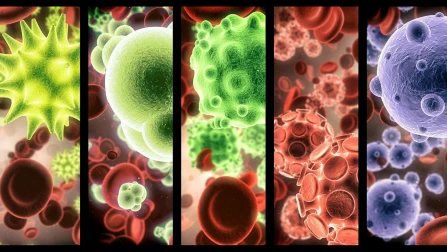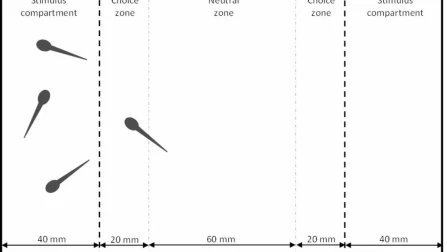
Overview
Evolutionary Ecology is a concept-oriented journal of biological research at the interface of ecology and evolution. We publish papers that therefore integrate both fields of research: research that seeks to explain the ecology of organisms in the context of evolution, or patterns of evolution as explained by ecological processes.
The journal publishes original research and discussion concerning the evolutionary ecology of organisms. These may include papers addressing evolutionary aspects of population ecology, organismal interactions and coevolution, behaviour, life histories, communication, morphology, host-parasite interactions and disease ecology, as well as ecological aspects of genetic processes. The objective is to promote the conceptual, theoretical and empirical development of ecology and evolutionary biology; the scope extends to any organism or system.
In addition to Original Research articles, we publish Review articles that survey recent developments in the field of evolutionary ecology; Perspectives articles which present new points of view and novel hypotheses; and Comments on articles recently published in Evolutionary Ecology or elsewhere. We also welcome Natural History Notes, which aim to present new observations of organismal biology in the wild that may provide inspiration for future research, and Methods papers, which present or review new theoretical, practical or analytical methods used in evolutionary ecology.
Students & Early Career Researchers: We particularly encourage, and offer incentives for, submission of Reviews, Ideas & Perspectives, and Methods papers by students and early-career researchers (defined as being within one year of award of a PhD degree)–please see Students & Early Career Researchers.
We publish 6 types of papers:
1. Original Research articles, which present the results of empirical or theoretical research testing current ideas in evolutionary ecology;
2. Review articles, which survey recent developments in the field of evolutionary ecology;
3. Perspectives articles, which present new points of view and/or novel hypotheses;
4. Methods papers, to present or review new theoretical, practical or analytical methods used in evolutionary ecology;
5. Natural History Notes, which present new observations of organismal biology in the wild that may provide inspiration for future evolutionary ecology research;
6. Comments on articles recently published in Evolutionary Ecology or elsewhere.
Evolutionary Ecology:
This is a transformative journal, you may have access to funding.
- Editor-in-Chief
-
- Matthew Symonds
- Impact factor
- 1.9 (2022)
- 5 year impact factor
- 2.0 (2022)
- Submission to first decision (median)
- 11 days
- Downloads
- 213,089 (2023)

Latest articles
Journal updates
-
-
Dispersal in small organisms
CALL FOR PAPERS | Deadline: November 1, 2024
This special issue will revisit the theme on the 50th anniversary of Daniel Otis Wolfenbarger’s Factors Affecting Dispersal Distances of Small Organisms with contributions on behavior, ecology, genetics, and evolution that deal with factors promoting and restricting dispersal. -
Mother strawberry poison frogs might supplement nutritive eggs with secretory provisioning
FEATURED PAPER | Freely accessible until May 31, 2024
This study suggests strawberry poison frog tadpoles obtain nutrients via skin-sucking behavior, potentially supplementing egg provisioning in phytotelm-breeding anurans. -
Four’s a crowd: social preferences for larger groups in golden mantella (Mantella aurantiaca) tadpoles
FEATURED PAPER | Open access
This study examined golden mantella tadpoles' social tendencies and group size preferences using a two-choice design with varying conspecific numbers.
Journal information
- Electronic ISSN
- 1573-8477
- Print ISSN
- 0269-7653
- Abstracted and indexed in
-
- AGRICOLA
- ANVUR
- Astrophysics Data System (ADS)
- BFI List
- BIOSIS
- Baidu
- Biological Abstracts
- CAB Abstracts
- CLOCKSS
- CNKI
- CNPIEC
- Current Contents/Agriculture, Biology & Environmental Sciences
- Dimensions
- EBSCO
- EMBiology
- Engineering Village – GEOBASE
- Google Scholar
- Japanese Science and Technology Agency (JST)
- Meta
- Naver
- OCLC WorldCat Discovery Service
- Portico
- ProQuest
- SCImago
- SCOPUS
- Science Citation Index Expanded (SCIE)
- TD Net Discovery Service
- UGC-CARE List (India)
- Wanfang
- Zoological Record
- Copyright information








